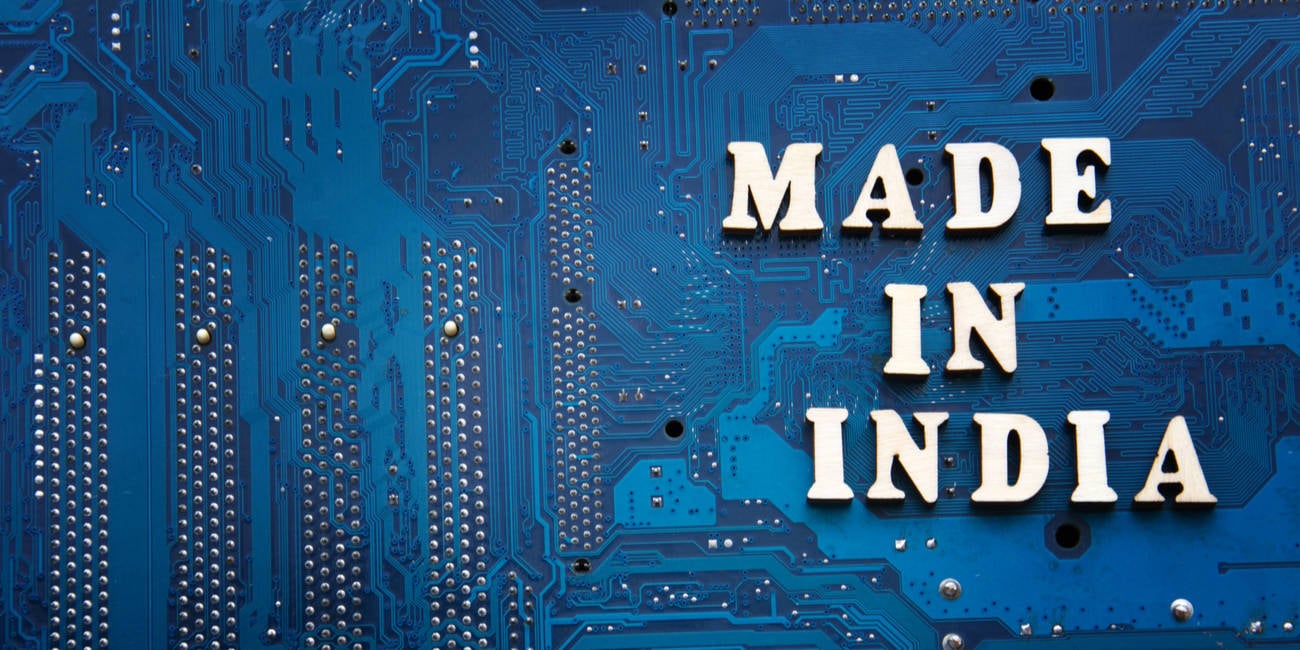Out Of Nowhere, India Requires PC And Server Makers To Get An Import License

India yesterday changed its trade rules to require manufacturers of many types of computers to secure an import license to bring their goods into the country.
The unheralded move, announced in a slightly off-center scanned PDF from the Ministry of Commerce and Industry, adds laptops, tablets, all-in-one personal computers, and ultrasmall form factor computers and servers to a "restricted list" of imports.
At the time of writing, the government's portal describing the requirements to secure such a license – and the cost of doing so – was not responsive, leaving The Register unable to assess the degree of the impost on would-be suppliers.
No explanation has been offered for the change, but there’s on obvious candidate: the nation's "Make In India" push, and accompanying subsidy programs, reflect policy to turn the nation into a tech manufacturing powerhouse. The argument goes that a local presence helps system builders to serve the burgeoning local market better and at the same time diversify their operations to reduce concentration of activities in China.
Allowing untrammelled imports doesn't help India to advance that argument or reach its goal of building a tech manufacturing hub. A costly license is a clear signal to system-makers that they will do well to consider making more stuff on Indian soil.
India has lured plenty of smartphone makers to its shores, but has had limited success attracting builders of other computers.
In 2021 Dell, Foxconn, Wistron and Flextronics signed up for a production incentive deal covering servers and PCs.
HPE has also agreed to build a billion dollars worth of servers in India over five years, and Cisco has promised to build kit of the same value over an unspecified multi-year timeframe.
But both vendors score billions in hardware revenue each year – a single billion worth of product over multiple years is, in the scheme of things, a modest investment in India.
In August 2022, India's IT minister Rajeev Chandrasekhar admitted that he was disappointed by uptake of India's incentive schemes for enterprise hardware players, and would revisit the offer.
With this change, India has used one of the oldest trade tactics – increasing costs – apparently to send a signal that manufacturers need to pay greater heed to consideration of a local presence.
It's done so amid a downturn in PC and enterprise hardware sales, and at a time when more and more workloads are moving to the cloud.
- Microsoft India poaches former AWS India boss Puneet Chandok
- Clients turn to Indian IT outsourcers for AI faster than industry can train staff
- India takes second punt at soft lunar landing with launch of Chandrayaan-3 mission
- Indian developer fired 90 percent of tech support team, outsourced the job to AI
India is working hard to make itself a more attractive destination for manufacturers. But while it has a deep pool of talent – which often works at low wages – it remains a tricky nation in which to do business. Transport infrastructure is not world class, while internet outages are frequent and imposed for capricious reasons – such as to deter cheating during examinations, or to quell civil unrest.
Consider, also, that PCs and tablets are not affordable for the bulk of India's population, nor are smartphones – which is why in June India's leading mobile carrier introduced a $12 feature phone that can run a small collection of apps.
This tweak to import rules may therefore have long term benefits if it results in some manufacturers setting up shop on the subcontinent. But if they balk, Indians will be left with bigger bills. ®
From Chip War To Cloud War: The Next Frontier In Global Tech Competition
The global chip war, characterized by intense competition among nations and corporations for supremacy in semiconductor ... Read more
The High Stakes Of Tech Regulation: Security Risks And Market Dynamics
The influence of tech giants in the global economy continues to grow, raising crucial questions about how to balance sec... Read more
The Tyranny Of Instagram Interiors: Why It's Time To Break Free From Algorithm-Driven Aesthetics
Instagram has become a dominant force in shaping interior design trends, offering a seemingly endless stream of inspirat... Read more
The Data Crunch In AI: Strategies For Sustainability
Exploring solutions to the imminent exhaustion of internet data for AI training.As the artificial intelligence (AI) indu... Read more
Google Abandons Four-Year Effort To Remove Cookies From Chrome Browser
After four years of dedicated effort, Google has decided to abandon its plan to remove third-party cookies from its Chro... Read more
LinkedIn Embraces AI And Gamification To Drive User Engagement And Revenue
In an effort to tackle slowing revenue growth and enhance user engagement, LinkedIn is turning to artificial intelligenc... Read more

